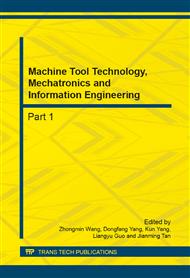[1]
R. Hastings and B. Joyce. Purify: Fast detection of memory leaks and access errors[C]. Proceedings of the Winter USENIX Conference, 1999. Page125-136.
Google Scholar
[2]
T. M. Austin, S. E. Breach, G. S. Sohi. Efficient detection of all pointer and array access errors[C]. USA: ACM special interest Group on programming languages, 1994. Page 290-301.
DOI: 10.1145/773473.178446
Google Scholar
[3]
S. Cherem, L. Princehouse, R. Rugina. Practical memory leak detection using guarded value-flow analysis[C] /Proc of ACM SIGPLAN Conference on Programming Language Design and Implementation. New York: ACM Press, 2007: 480-491.
DOI: 10.1145/1250734.1250789
Google Scholar
[4]
Y. Jung, K. Yi. Practical memory leak detector based on parameterized procedural summaries[C], Proc of International Symposium on Foundations of Software Engineering. New York: ACM Press, 2008: 131-140.
DOI: 10.1145/1375634.1375653
Google Scholar
[5]
Z. X. Xu, J. Zhang. Path and context sensitive inter-procedural memory leak detection[C], Proc of the 8th International Conference on Quality Software. 2008: 412-420.
DOI: 10.1109/qsic.2008.12
Google Scholar
[6]
T. Sai, K. Vaidyanathan, K. Gross. Low-overhead run-time memory leak detection and recovery/ Proceedings of the PRDC' 06. River side, USA, 2006: 329-340.
DOI: 10.1109/prdc.2006.42
Google Scholar


